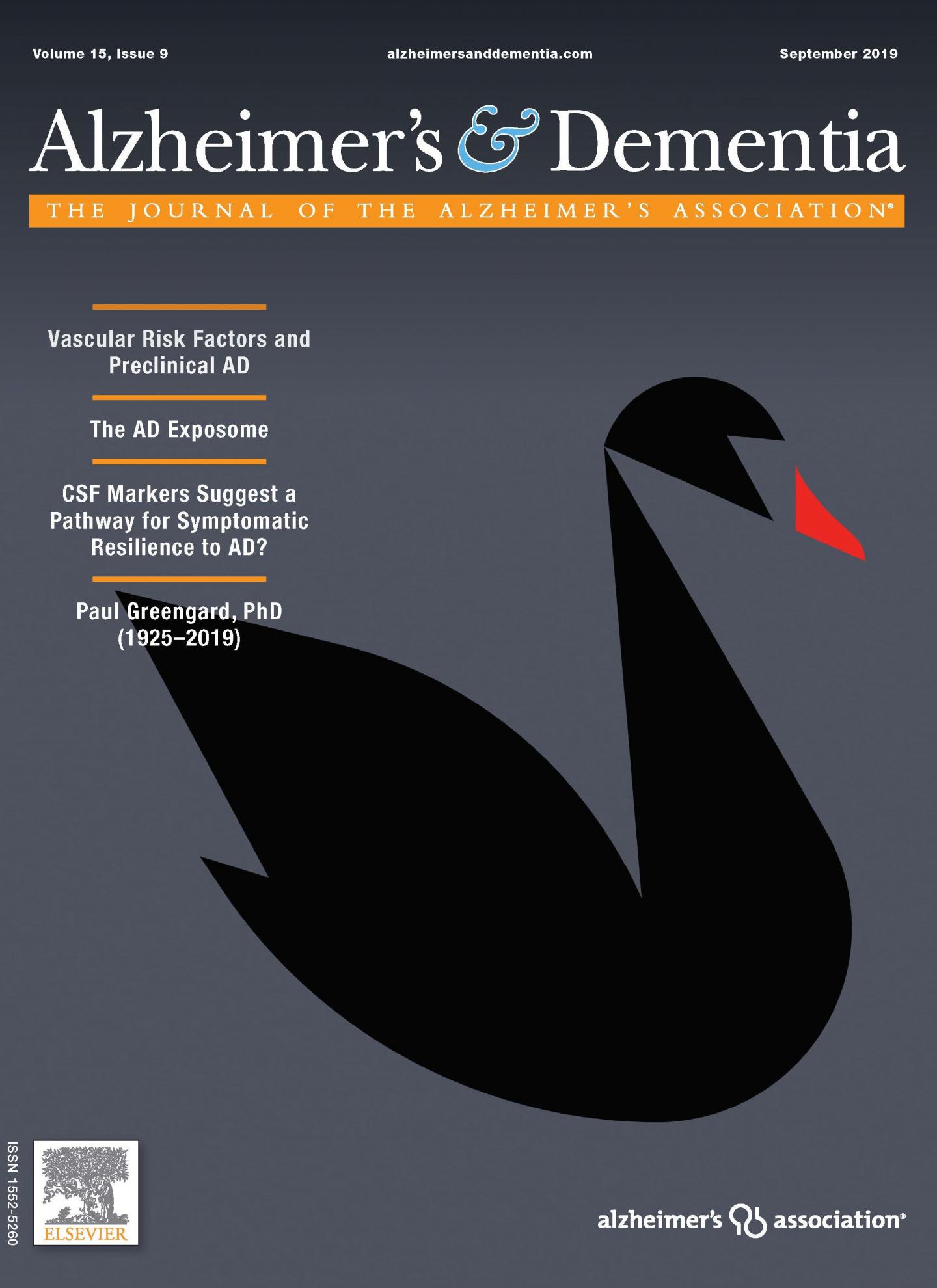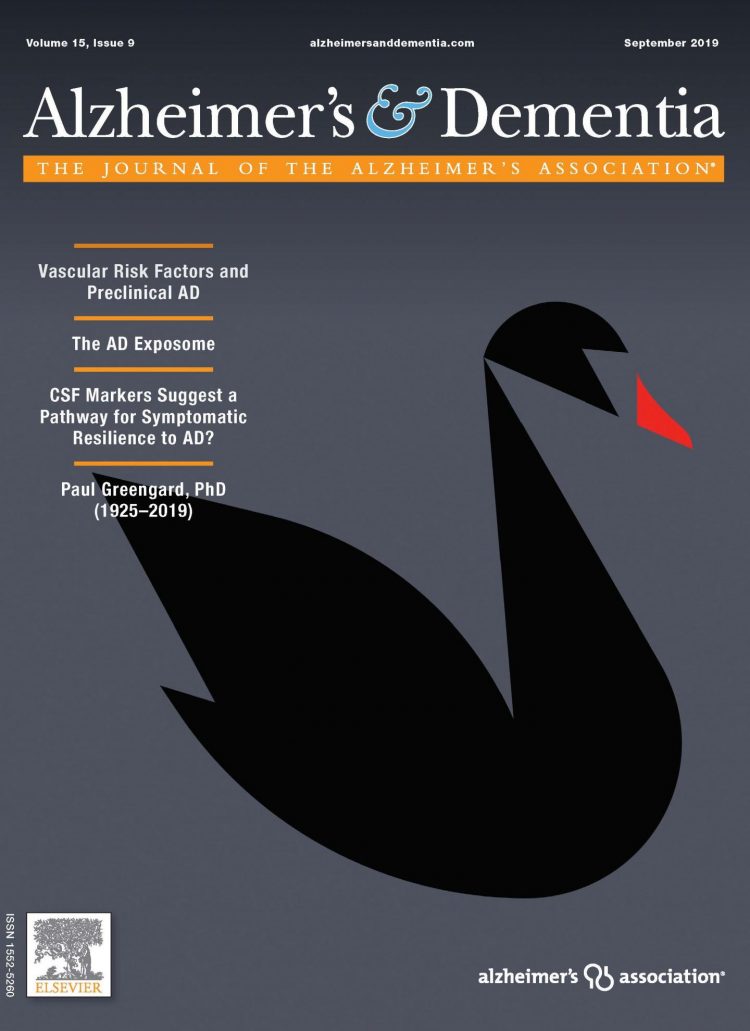September 2019 journal digest

Credit: Alzheimer’s Association
CHICAGO – A new study finds that individuals thought to be at an increased risk of developing Alzheimer’s disease and also have high blood pressure and a higher risk of developing heart disease (based on a Framingham risk score), may also have a faster accumulation of tau tangles, one of the hallmarks of Alzheimer’s disease. The authors conclude that risk factors including high blood pressure, high cholesterol levels and weight management should be monitored from midlife onward to detect early changes that may be related to Alzheimer’s.
The study in the September 2019 issue of Alzheimer’s & Dementia: The Journal of the Alzheimer’s Association, looked at the association between vascular factors – including high blood pressure and elevated cholesterol – and brain health in individuals who were cognitively normal but had abnormal amyloid and tau levels. The ability to check for changes in the brain before symptoms of dementia appear is important for the development of strategies to reduce the risk in individuals at increased risk for Alzheimer’s and other dementias. It may also be useful for predicting who might be at greatest risk for developing dementia in the future.
Link: Vascular Risk Factors are Associated with Longitudinal Changes in Cerebrospinal Fluid Tau Markers
Other articles published in September include:
Link: The Alzheimer’s Disease Exposome
In a Theoretical Article, researchers from the University of Southern California and Duke University propose a new roadmap to look at the complexity of Alzheimer’s disease. Borrowing a term from the cancer world, the researchers “propose the ‘Alzheimer’s disease exposome’ to address the major gaps in understanding environmental contributions to the genetic and nongenetic risk of Alzheimer’s disease and other dementias.” The researchers suggest a comprehensive assessment of all the modifiable environmental factors associated with cognitive aging and Alzheimer’s disease, including diet, exercise, air pollution, socio-economic status, toxins, traumatic brain injuries, stress, inflammation, infections, hypertension, cells and gender. The authors suggest that using this new lens through which to view the disease will result in new research directions and therapy targets.
Link: Longitudinal Analysis of Dementia Diagnosis and Specialty Care Among Racially Diverse Medicare Beneficiaries
Most individuals with dementia do not receive a diagnosis or their medical care from a specialist, according to a new study. Researchers from the University of Southern California, Johns Hopkins and the University of Washington used Medicare data to review dementia diagnoses of 226,604 individuals. They found that 85% were diagnosed by a non-dementia specialist physician, usually a primary care doctor, and received an unspecified dementia diagnosis. The use of dementia specialty care was especially low among Hispanics and Asian-Americans. Dementia specialists include neurologists, geriatricians, psychiatrists and neuropsychiatrists. The authors conclude, “it is unknown whether low rate of dementia specialty care lead to worse outcomes. A critical next step is to investigate the links between these patterns of diagnosis, health care use and outcomes in the U.S. population.”
###
These articles and the rest of the September issue of Alzheimer’s & Dementia: The Journal of the Alzheimer’s Association are available online.
About the Alzheimer’s Association
The Alzheimer’s Association is the world’s leading voluntary health organization in Alzheimer’s care, support and research. Our mission is to eliminate Alzheimer’s disease through the advancement of research; to provide and enhance care and support for all affected; and to reduce the risk of dementia through the promotion of brain health. Our vision is a world without Alzheimer’s. For more information, visit http://www.
Media Contact
Jann Ingmire
[email protected]
Original Source
https:/





